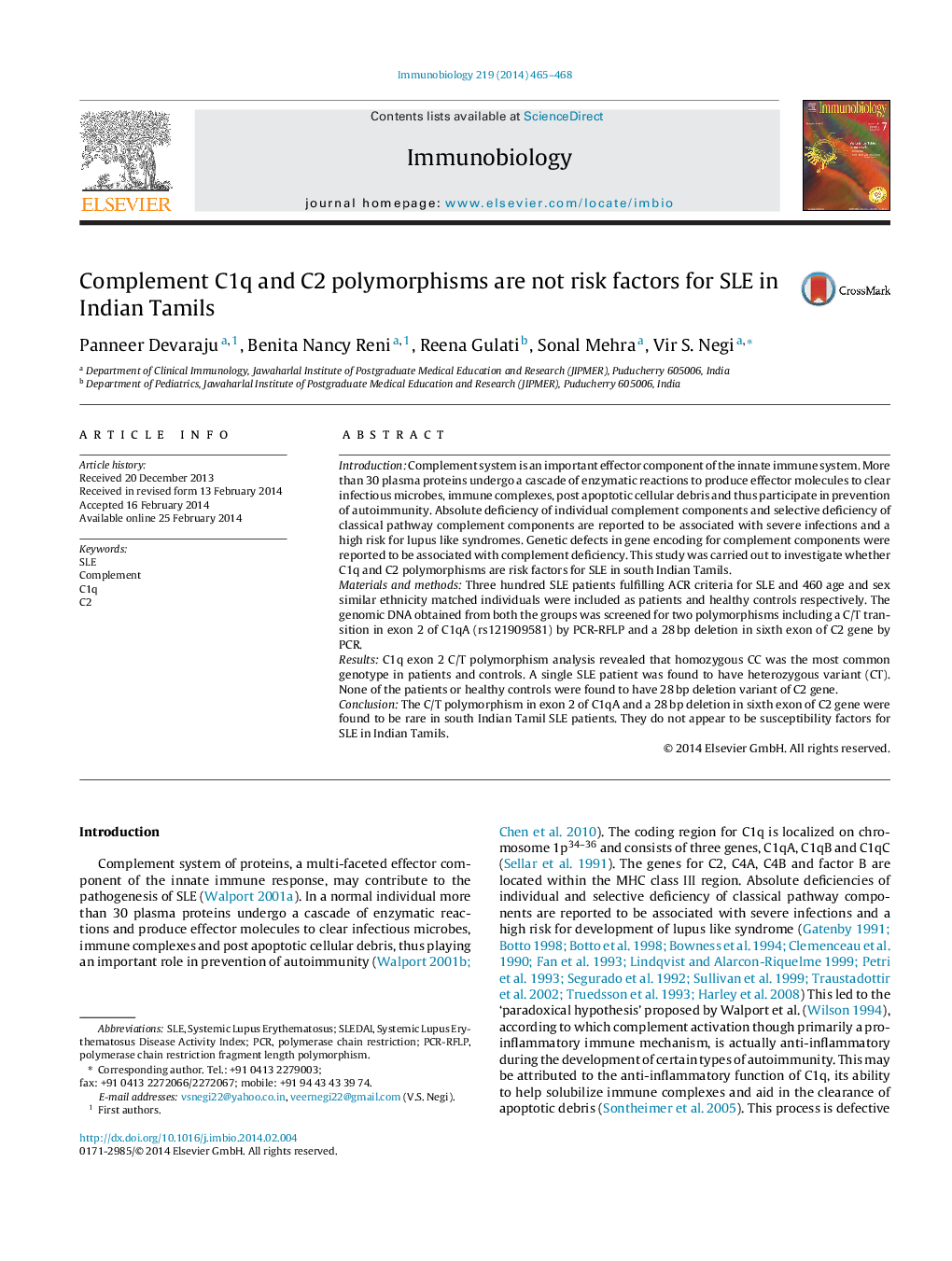| کد مقاله | کد نشریه | سال انتشار | مقاله انگلیسی | نسخه تمام متن |
|---|---|---|---|---|
| 2183000 | 1095537 | 2014 | 4 صفحه PDF | دانلود رایگان |

IntroductionComplement system is an important effector component of the innate immune system. More than 30 plasma proteins undergo a cascade of enzymatic reactions to produce effector molecules to clear infectious microbes, immune complexes, post apoptotic cellular debris and thus participate in prevention of autoimmunity. Absolute deficiency of individual complement components and selective deficiency of classical pathway complement components are reported to be associated with severe infections and a high risk for lupus like syndromes. Genetic defects in gene encoding for complement components were reported to be associated with complement deficiency. This study was carried out to investigate whether C1q and C2 polymorphisms are risk factors for SLE in south Indian Tamils.Materials and methodsThree hundred SLE patients fulfilling ACR criteria for SLE and 460 age and sex similar ethnicity matched individuals were included as patients and healthy controls respectively. The genomic DNA obtained from both the groups was screened for two polymorphisms including a C/T transition in exon 2 of C1qA (rs121909581) by PCR-RFLP and a 28 bp deletion in sixth exon of C2 gene by PCR.ResultsC1q exon 2 C/T polymorphism analysis revealed that homozygous CC was the most common genotype in patients and controls. A single SLE patient was found to have heterozygous variant (CT). None of the patients or healthy controls were found to have 28 bp deletion variant of C2 gene.ConclusionThe C/T polymorphism in exon 2 of C1qA and a 28 bp deletion in sixth exon of C2 gene were found to be rare in south Indian Tamil SLE patients. They do not appear to be susceptibility factors for SLE in Indian Tamils.
Journal: Immunobiology - Volume 219, Issue 6, June 2014, Pages 465–468